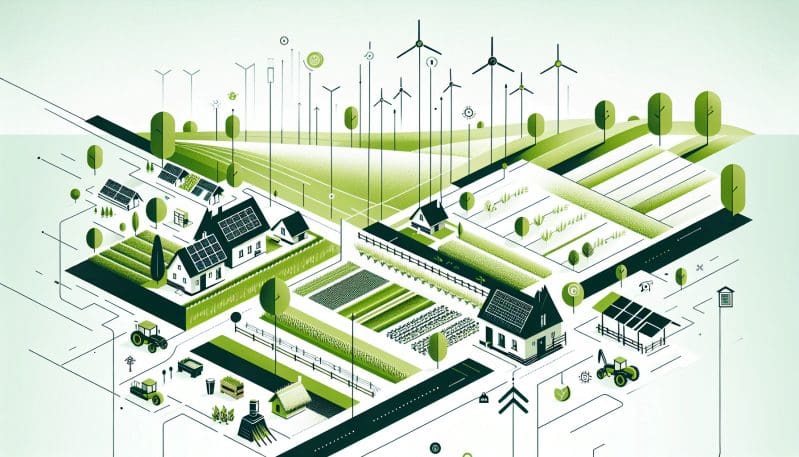The Future of Work in Rural Communities: Addressing the Unique Challenges and Opportunities
- Home
- The Future of Work in Rural Communities: Addressing the Unique Challenges and Opportunities

- Editors Desk
- January 11, 2024
- 0 Comments
As the world hurtles towards a technologically advanced future, much of the discourse on the ‘future of work’ centers around urban areas, often neglecting the rich tapestry of rural communities. Yet, it is in these spaces where the heart of tradition beats, local agriculture thrives, and small-scale industries persist against the tide of economic shifts. Today, we delve into the unique challenges and opportunities facing workers in rural settings and paint a vision of an inclusive future that No Worker Left Behind is passionately working towards.
Challenges in Rural Job Markets:
Rural communities are often defined by limited access to resources that are abundantly available in urban areas, such as high-speed internet, educational facilities, healthcare, and diverse employment opportunities. As urban centers grow exponentially, the rural workforce faces a continuing trend of outmigration as young, skilled laborers seek opportunities elsewhere, leaving behind aging populations and shrinking economies.
Furthermore, rural workers are frequently employed in sectors that are vulnerable to global economic changes, such as agriculture, which faces threats from climate change and market volatility. Traditional crafts and small-scale industries, pillars of rural identity and economy, also struggle to compete with mass production and face the daunting task of preserving their heritage while evolving to meet modern demands.
Opportunities and the No Worker Left Behind Initiative:
No Worker Left Behind is at the forefront of addressing these issues by championing sustainable economic development that is uniquely tailored to rural areas. This involves supporting local agriculture through innovative farming techniques, technology adaptation, and opening new markets that value sustainability and locality.
We also recognize the cultural significance and economic potential of traditional crafts and industries. By providing a platform for skills development and modern marketing strategies, we are working to ensure these trades not only survive but thrive in the digital age.
The Impact of Automation and Remote Work:
Automation presents a double-edged sword for rural communities. On one hand, it threatens to replace jobs in sectors like agriculture and manufacturing. On the other, it can alleviate heavy labor and improve efficiency, creating new markets and job opportunities if leveraged correctly.
Remote working trends, accelerated by the global pandemic, have shown that many jobs can be done from virtually anywhere with an internet connection. This presents a golden opportunity for rural workers, opening the door to employment opportunities previously out of reach and potentially reversing the brain drain.
Harnessing the Green Economy:
Rural areas stand to benefit significantly from the burgeoning green economy. Initiatives such as renewable energy projects not only provide environmental benefits but also create jobs and stimulate local economies. No Worker Left Behind is committed to facilitating this transition, ensuring that rural workers have the necessary training and resources to capitalize on these new opportunities.
A More Inclusive Future of Work:
The future of work in rural communities, as envisioned by No Worker Left Behind, embraces both tradition and innovation. By tackling the existing challenges head-on and embracing the opportunities that come with economic and technological changes, we can pave the way for a future that values rural contributions to the global economy.
The narrative of the future of work must be holistic, taking into account the diversity of the workforce and the various landscapes they inhabit. No Worker Left Behind seeks to usher in a new era where work is not just a means to an end, but a harmonious blend of livelihood, culture, and sustainable development, regardless of zip code.
Join us as we strive to build a future where no worker is left behind, where rural communities are not just surviving, but thriving, and where the balance of development across regions is not just an aspiration, but a reality.
Choose Layout
Main Color Scheme
- RTL Version
- LTR Version
